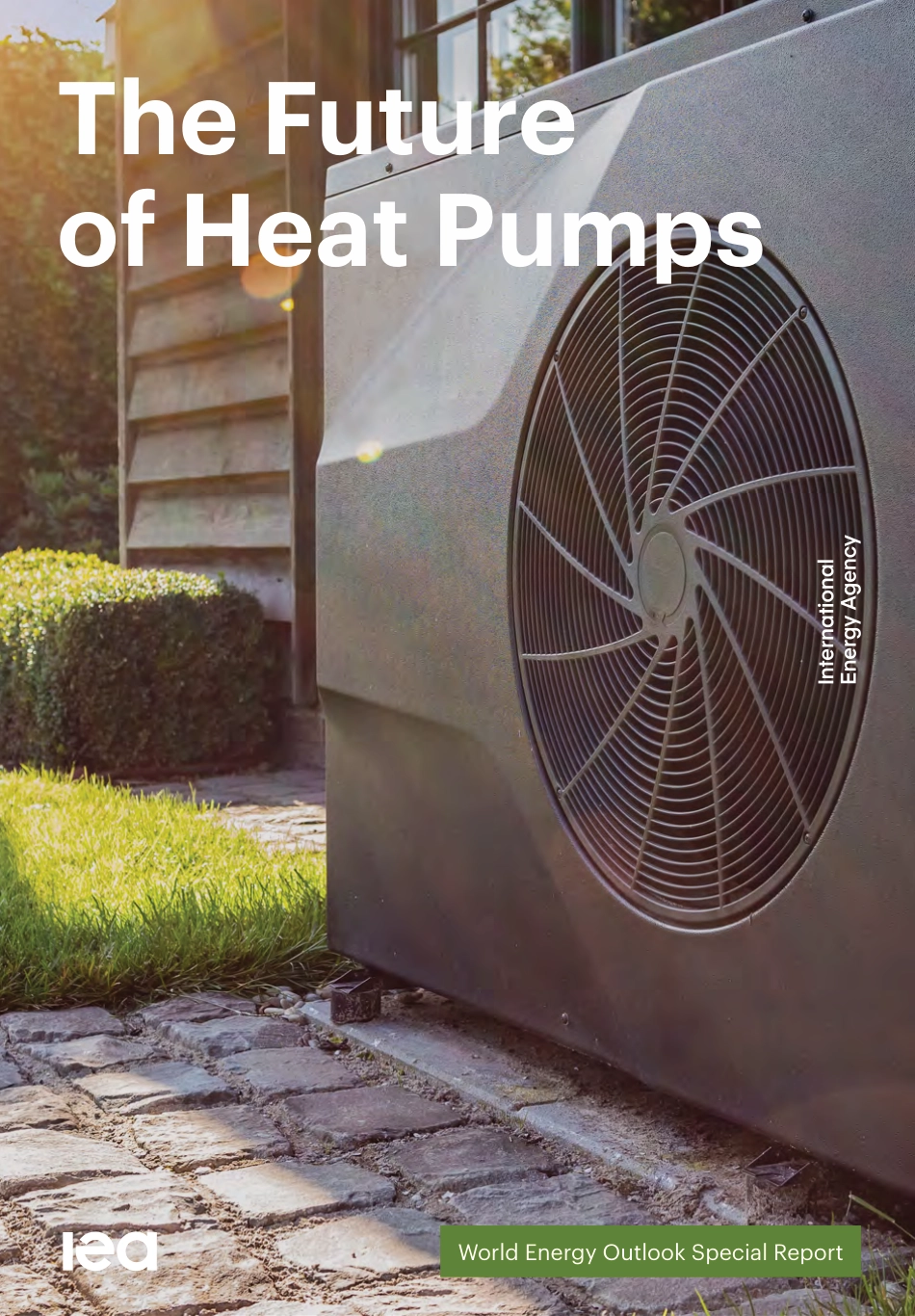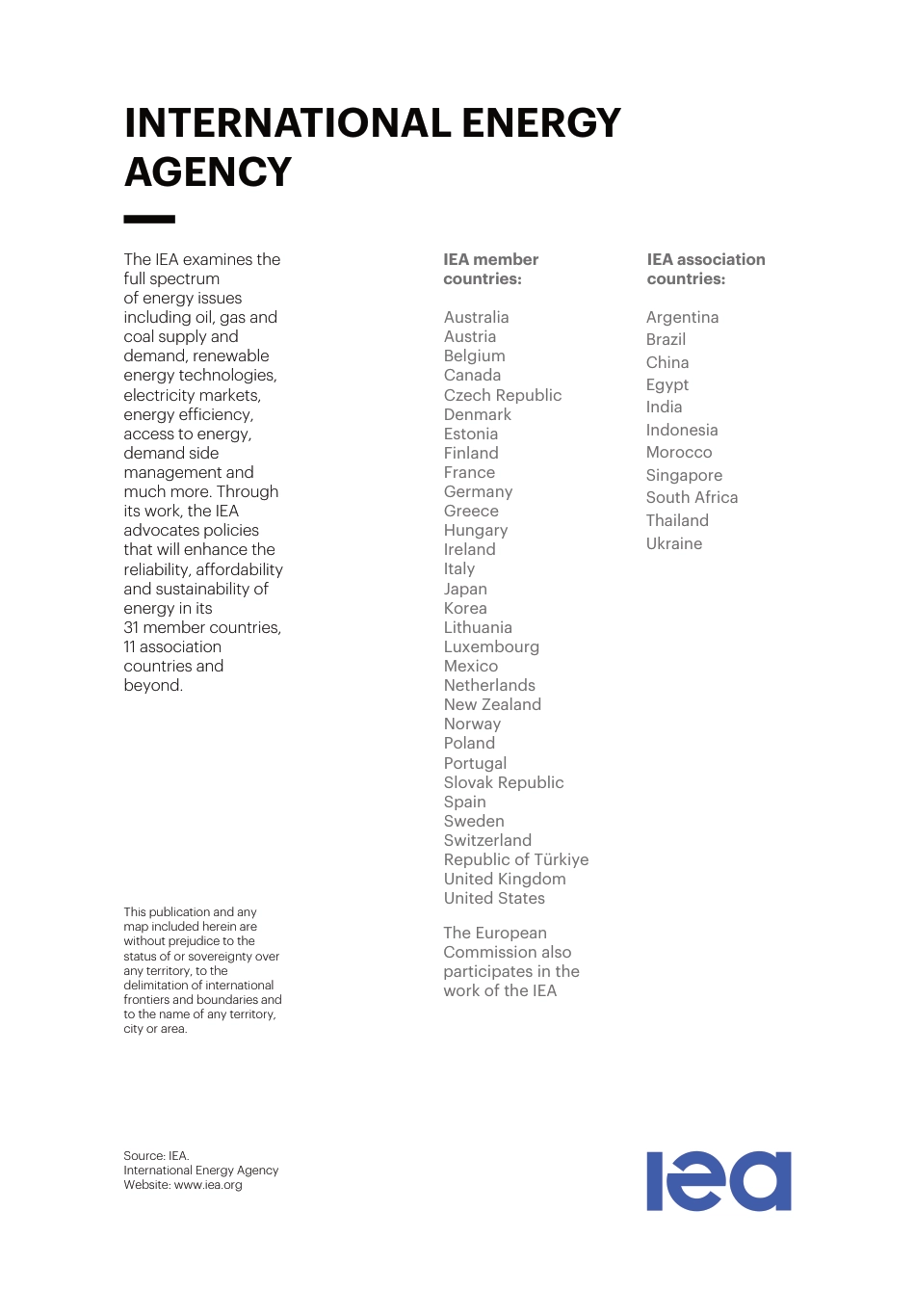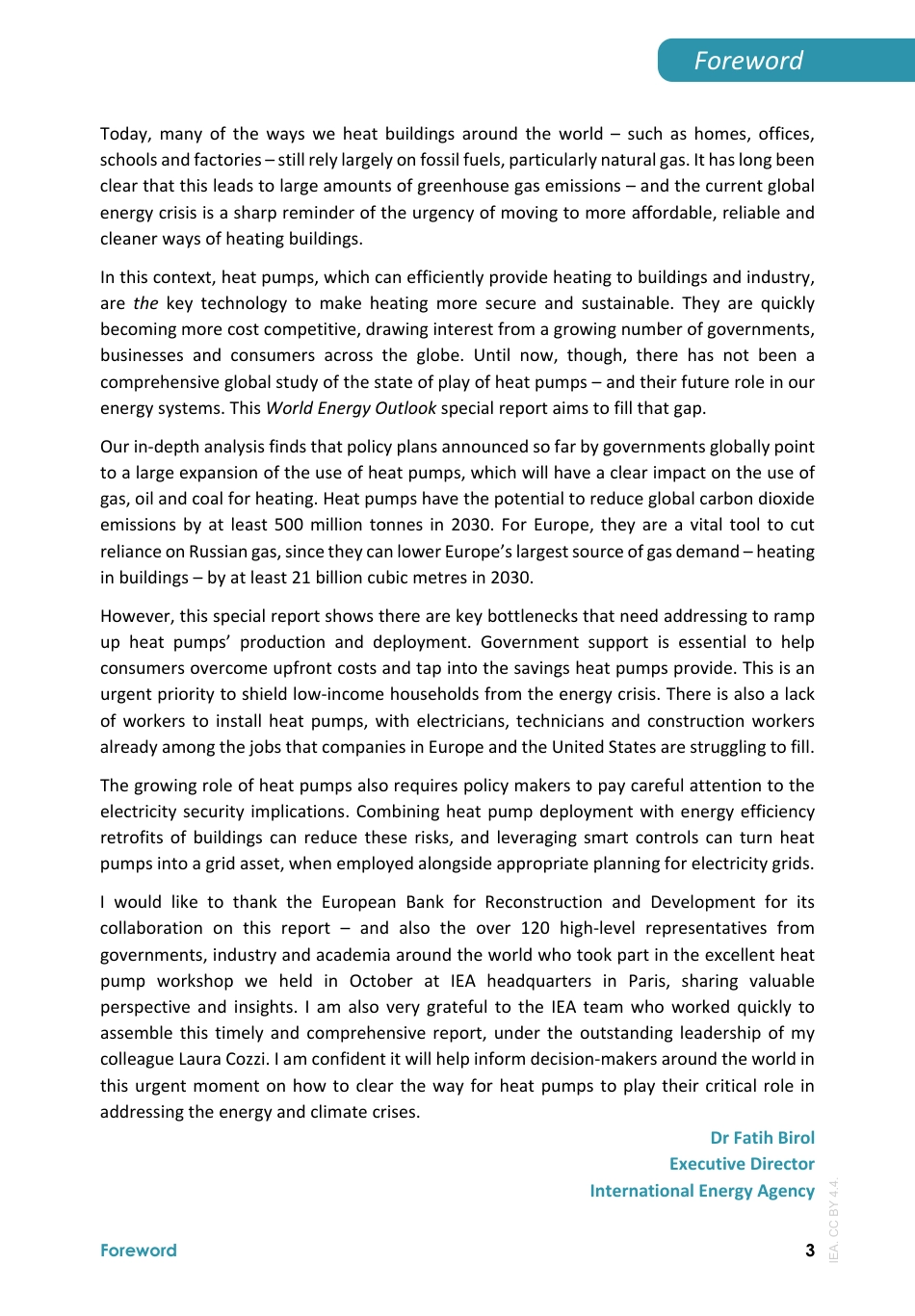World Energy Outlook Special ReportThe Future of Heat PumpsThe IEA examines the full spectrum of energy issues including oil, gas and coal supply and demand, renewable energy technologies, electricity markets, energy efficiency, access to energy, demand side management and much more. Through its work, the IEA advocates policies that will enhance the reliability, affordability and sustainability of energy in its 31 member countries, 11 association countries and beyond.This publication and any map included herein are without prejudice to the status of or sovereignty over any territory, to the delimitation of international frontiers and boundaries and to the name of any territory, city or area.Source: IEA.International Energy Agency Website: www.iea.orgIEA member countries: Australia Austria Belgium CanadaCzech Republic Denmark Estonia Finland France Germany Greece Hungary Ireland ItalyJapanKorea Lithuania Luxembourg Mexico Netherlands New Zealand Norway Poland Portugal Slovak Republic Spain Sweden Switzerland Republic of TürkiyeUnited Kingdom United StatesThe European Commission also participates in the work of the IEAIEA association countries:INTERNATIONAL ENERGYAGENCYArgentinaBrazilChinaEgyptIndiaIndonesiaMoroccoSingaporeSouth AfricaThailandUkraineForeword 3 Foreword Today, many of the ways we heat buildings around the world – such as homes, offices, schools and factories – still rely largely on fossil fuels, particularly natural gas. It has long been clear that this leads to large amounts of greenhouse gas emissions – and the current global energy crisis is a sharp reminder of the urgency of moving to more affordable, reliable and cleaner ways of heating buildings. In this context, heat pumps, which can efficiently provide...



